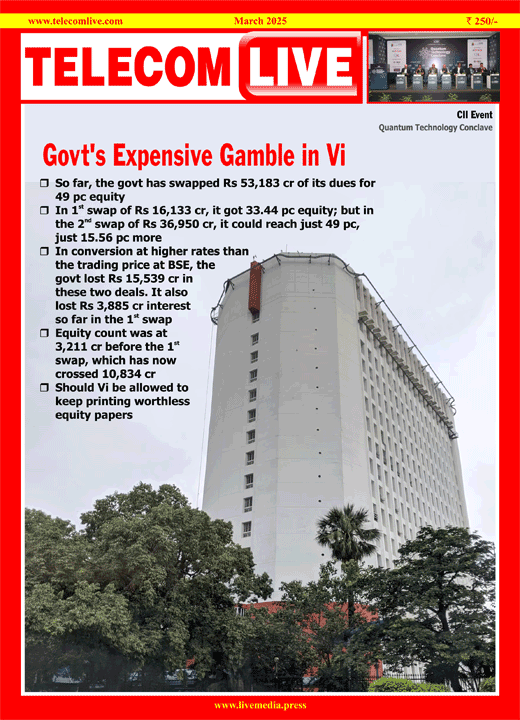Govt to develop custom AI model for Indian use, Rs 2,000 crore allocated
The government is planning to chart its own course in the field of artificial intelligence (AI) by laying the groundwork for a bespoke foundational model tailored to the needs of Indian companies, entrepreneurs, academics, and researchers, reported The Economic Times citing sources.
This ambitious initiative will start with an initial investment of Rs 2,000 crore, slated for launch after the ongoing 2024 Lok Sabha elections.
Expected to position India among nations like China and the US, which have already embarked on similar initiatives, the proposed endeavour may be led by the IndiaAI Innovation Centre. This centre is expected to be established under the Rs 10,000 crore IndiaAI Mission.
“The government will likely tap eminent higher education institutes and prominent researchers working on AI in the private sector to work on a foundational model,” a senior official said.
Envisioned as either a large action model (LAM) or a large multimodal model (LMM), it aims to produce outputs catering to a diverse range of applications and services, the official added.
Foundational models, essentially pre-trained generative transformers, serve as the cornerstone for the development of other AI models. They use existing data to generate new responses based on user inputs.
Addressing the specific requirements and preferences of India, the official stated, “This [foundational model] will aim to provide output in more than one native language, borrowing from all the work that has been done so far on projects such as Bhashini.”
AI translation challenges
Bhashini, an AI-based language translation platform and model initiated by the IT ministry and launched in 2022, serves as a relevant example. Typically, foundational models are developed by both private entities and governmental bodies. According to data from the Stanford Center for Research on Foundation Models, over 330 such models have been developed by private firms and governments globally as of April 2024.
Despite facing challenges such as hallucination, bias, and comprehension deficits, models developed by entities like Microsoft-backed OpenAI, Google, and Amazon maintain a competitive edge. The Indian government aims to use publicly available data, digitised literature, and anonymised non-personal data obtained from various stakeholders to train its model.
However, addressing privacy and copyright concerns related to the data remains crucial. An official suggested a potential solution, stating, “We may also look at a platform exclusively for Indian startups where non-personal and anonymised data can be volunteered for training of the model.” Additionally, the foundational model will undergo training using global datasets and open-source machine learning tools to enhance its capabilities.
Data sharing imperative
A collaborative approach involving data sharing is considered essential for the success of this initiative. Officials underscore the significance of making data accessible for training purposes to facilitate the development of diverse use cases before commercial deployment.
Furthermore, the government aims to concentrate on creating specific use cases for various departments, leveraging data generated from government welfare schemes to improve service delivery efficiency. “With appropriate and targeted training, the same anonymised data could be repurposed for a better and more targeted delivery of these services and could result in a much faster turnaround time even for private companies,” the official told The Economic Times.



